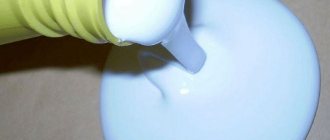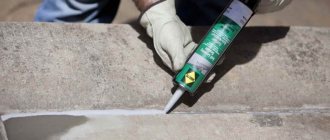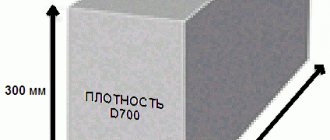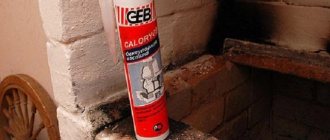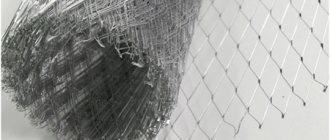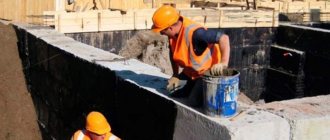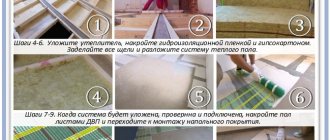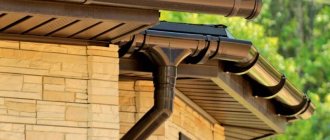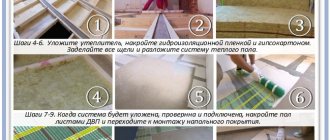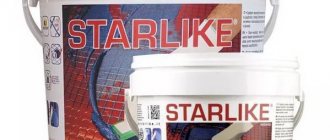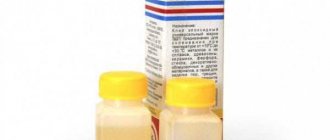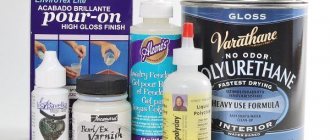If you have ever studied the quality of modern building materials, then you have probably noticed how TechnoNIKOL products are praised. Is this a marketing ploy, or is domestic production really capable of being both solid and of high quality? And why are these products so popular abroad, what is their secret?
In fact, a lot of effort is invested in this production, and against the backdrop of low-quality handicraft materials, this approach to quality is an outlet for many.
Therefore, let's take a closer look at what TechnoNIKOL is and what products this manufacturer presents to the market. This article will be useful if you are looking at the products of this company and even if you already trust it, but want to learn more. By the way, do you know about all the new products? Believe me, we can surprise you!
Content
First, a little about the company itself:
In which countries does TechnoNIKOL operate? Its market is quite wide, plus you often hear about how this company enters into another contract and acquires another successful plant:
In total, TechnoNIKOL has 5 main product lines: TechnoNIKOL, TechnoNIKOL Master, TechnoNIKOL Premium, TechnoNIKOL Architect and TechnoNIKOL Special.
Each of these lines has similar products, but different purposes:
- The Technonikol line is a standard line of materials used in professional civil and industrial construction.
- TechnoNIKOL Master is a retail line for private use. It’s very easy to work with even for beginners, everything is so well thought out. Marking lines, detailed instructions and error protection - all conditions have been created so that you can cope with any task yourself.
- "TechnoNIKOL Premium" is a premium line of particularly high quality, also only for professional construction. All products in this line are durable, inexpensive and are actively used in the construction of modern buildings.
- TechnoNIKOL Architect are the favorite products of modern designers. This line provides a huge selection of repair and finishing materials with a carefully thought-out concept, with attention to every detail.
- "TechnoNIKOL Special" is designed for special types of construction, such as road, underground and those where materials with clearly defined qualities are needed. This line also includes sealants, primers, heat-insulating non-shrink boards and even marking paint.
Today we will look at the most popular and well-known products from Technonikol, which you will probably need in arranging your family nest. Let's get acquainted with quality?
Where is it used?
Stone wool has a fairly wide range of applications. A large range of products allows you to choose the right material. Performing the function of heat and sound insulation, insulation can protect structures from destructive influences.
Cotton wool is produced in rolls and slabs and comes in different densities, so it can be used both on external and internal areas of objects. The choice of material depends on:
- places where it will be installed;
- climatic features of the area;
- thermal losses of the object.
In other areas, basalt wool with a lower density is used.
There is a difference between technical and industrial insulation. The first is needed when there is a possibility of very high temperatures - above 900 ° C.
Basalt insulation is used for:
- insulation on any structure or building - it can be installed horizontally, vertically, obliquely;
- insulation on plaster;
- thermal insulation of a suspended ventilated facade;
- internal insulation of enclosing structures;
- in sandwich panel systems, concrete panels;
- thermal insulation of the lower layer of roofing structures;
- insulation of attics, attic floors, frame walls;
- thermal insulation in the ceilings and walls of baths and saunas;
- insulation in water supply and chimney structures, steam and ventilation devices, in furnaces.
Waterproofing: for private and industrial construction
So, most builders in our country are well familiar with waterproofing from TechnoNIKOL, which is presented in the following products:
Durable underlay carpets
Underlay carpets from TechnoNIKOL are also quite famous. They allow you to reliably protect the pitched roof and extend its service life up to 60 years.
We are talking about products such as Anderep Plus and Profplus:
Such underlay carpets are produced with mechanical fastening, in the form of special bitumen-free adhesive strips. To connect the carpet sheets together, simply remove the protective tape and press edge to edge with a slight overlap, right along the convenient markings. It is convenient to work with such material; there is little excess left.
The adhesive strip on TechnoNIKOL underlay carpets is quite thin, but has high adhesion and does not allow the possibility of moisture penetration. The strips are slightly offset from the edge, so there is no need to remove the protective film from the adhesive strip.
This adhesive strip allows you to avoid purchasing additional sealants or mastics, and its properties are maintained even at temperatures down to -15°C. The Plus series is the next generation, which has a protective coating made of woven black polypropylene. This makes it possible to use such a carpet as a temporary roof for six months!
Insulation films and temporary roofing
The next series of insulating materials is waterproofing and vapor barrier film. A vapor barrier is installed on the inside of the roof and protects the insulation from water vapor:
Waterproofing serves as a protective barrier for roof insulation already on the outside of the roof:
By the way, temporary roofing is often confused with roof waterproofing. In fact, it perfectly protects the newly laid insulation from bad weather, but for no more than six months - only during construction work:
A separate type of waterproofing is cut-off. It is designed to protect the roof in such difficult places as the mauerlat and those areas of the roof and walls where temporary repairs are being made:
Nicoband bitumen tape
Separate products of TechnoNIKOL are Nicoband bitumen tapes. They incredibly please both professional builders and home craftsmen with their versatility.
If earlier, in order to repair a crack in the roof, you had to drag a bucket of hot mastic upstairs and do one of the not-so-pleasant jobs, now 10-15 minutes are enough for a simple manipulation. So, the tape is cut to the required size, heated with a hairdryer if desired, and glued to the damaged area.
Then simply roll it with a roller. You can do without a hair dryer, but in this case the bitumen melts and provides better adhesion. Experienced builders quickly noticed this, and are not lazy to resort to additional measures, even if the manufacturer does not force them to do so.
What is the secret of such a tape? It contains: a durable and elastic base, modified bitumen and a coating that protects against ultraviolet rays. This tape is suitable for almost all types of surfaces:
These tapes are used to repair gutters, roofs, windows and any complex leaks on almost any roofing material. And all this even in the rain! What is their versatility?
In Russia, about five other suppliers sell similar tapes, also of good quality, but Nicoband occupies a leading position due to the fact that the company itself is trusted.
Breathable waterproofing for roofing
We will also tell you about such a new product as Uniflex-Vent waterproofing. One of the most common problems with roofs in a climate such as Russia is swelling of the roofing carpet due to the accumulation of moisture inside the entire structure.
First, microcracks appear in the roof, liquid gets into them, then it penetrates directly into the insulation and has nowhere to go from there. And the insulation, in turn, is rapidly losing its most important properties.
The inventors of TechnoNIKOL found a solution to this problem - to repair the roof so that moisture is removed from its interior on its own. These are materials from the Uniflex-Vent series. It is used to repair roofing in two layers, with the bottom layer “breathing”.
Thanks to this technology, the roof is repaired in such a way that there is no need to remove the old covering. This saves both effort and costs. The only thing you have to do is to perforate the old coating. At the same time, Uniflex-Vent is waterproof, heat-resistant and durable.
What it is?
Rocklight mineral wool consists of synthetic fibers and thin chips of stone and clay. Due to its low weight, excellent evaporation and low hygroscopicity, this material cannot be overestimated. You can find it on sale in the form of rolls and plates of different sizes and thicknesses - from 50 to 100 mm.
Heat is retained thanks to a multi-layer structure with interlayers. Unlike polystyrene, small rodents do not make nests in mineral wool. It can be noted that cotton wool quickly collects dust and does not withstand moisture, so water removal must be thought out more carefully.
The insulation has excellent thermal insulation. The material is made from natural compositions - fiberglass and quartz sand. It does not pose a danger to people and the environment, retains heat, absorbs noise and does not accumulate insects and rodents due to its inorganic origin. Mineral wool has a lifespan of about 50 years without signs of decay, blooming or rotting.
The safest and most famous type is basalt - this is a natural material, stone, turned into thin fibers in a factory. This insulation does not actually burn up to 1000°C.
Among the well-known brands of basalt wool is Rocklight, which guarantees:
- excellent heat and sound insulation;
- no combustion;
- ease of installation.
In addition, the price is pleasantly surprising, as is the high quality. Fire safety at its best. “Rocklight” is durable, vapor-permeable properties remain throughout its entire service life
There is never fungus in mineral wool, the walls “breathe”, which is important for attic insulation
Mineral wool is made in the form of slabs or rolls. The material is quite soft, so it is not placed under the roof and does not fill it from the inside. This material is made in various forms:
- rugs;
- light, soft, semi-strong and durable plates;
- cylinders;
- in the form of loose wool.
According to GOST, mineral wool can be:
- glass;
- basalt;
- slag.
The composition may include binder resins. Also mentioned is an insulating material based on other minerals (not just basalt), which may include a variety of fibers and quartz shavings. The temperature limits for such insulation are 400–700 C.
Glass wool can be harmful if it comes into contact with skin or eyes, so it is necessary to work in special protective clothing, which is thrown away after use. When closed, the material is not dangerous.
There is also slag wool, but it is hardly used anymore. This material is cheap, but has low thermal insulation properties compared to others, and is not chemically neutral, so the presence of water can lead to corrosion of steel structures.
The general advantages of mineral insulation are that they are cheaper than most polymers, have good thermal insulation properties, and lack of water absorption.
Thermal insulation: based on mineral wool and expanded polystyrene
The first fact that people learn about thermal insulation from TechnoNIKOL is the impressive service life of the materials. The most popular glass wool today is Isover, universal and budget-friendly. Already in narrower circles they know about Technoacoustics and Technoplex.
Mineral wool slabs called Technolight are quite in demand in the domestic market. TechnoNIKOL produces them from basalt, which is their secret of quality. The first is low thermal conductivity. Here, 1m3 is compared in its properties to 3000 pieces of clay brick.
Technolight mineral slabs are also good in terms of noise absorption and sound insulation. They are fire-resistant, “breathe”, especially resistant to mechanical and chemical damage. They are environmentally friendly, durable and are considered one of the best for arranging a residential attic and insulating the walls and partitions of a house:
Also, many people know about Rocklight insulation, although not everyone knows that it is a Technonikol product:
As we have already said, Master series products are easy to use in literally 5 steps. This is precisely why insulation from Technonikol is valued, because during installation and operation no problems arise with them:
Together with a specific insulation, TechnoNIKOL develops entire systems in which every detail is thought out:
Extruded polystyrene foam - application features
Expanded polystyrene insulators are combined into one series - Carbon. The materials have similar characteristics, but differ in release form. The type of execution largely determines the scope of use of EPS.
Material characteristics
The insulation is produced by extrusion. As a result, many sealed cells are formed. The composition and structure of expanded polystyrene endowed the heat insulator with the following properties:
- Low thermal conductivity. An indicator of 0.028-0.035 W/m*C puts the material among the leaders in terms of thermal efficiency.
- Hydrophobicity. EPS does not absorb moisture and retains its characteristics in a humid environment.
- Moderate combustion. The use of carbon made it possible to minimize the flammability of polystyrene foam - when the material melts, burning drops do not form .
- Insulation thickness – 20-120 mm. The choice depends on the area of use.
- The thermal insulator is resistant to fungus, mold, and pests.
- The operating temperature range is comparable to that of basalt insulation - from -50°C to +75°C.
Weaknesses of EPPS: vulnerability to gasoline, solvents, UV rays, fire.
Carbon: variety of product items
Types of extruded polystyrene foam TechnoNIKOL Carbon:
- Eco - slabs of various thicknesses (20-100 mm) for insulation of low-rise buildings and cottages.
- Drain – one side of the EPS has drainage grooves. The holes provide improved ventilation when insulating a flat roof or draining rainwater when insulating a foundation.
- Eco Fas – arrangement of house plinths, plastered facades. Milling on the outside ensures good adhesion to various surfaces.
- Eco SP – suitable for insulating foundations using the Swedish plate method. The foundation includes communications and a floor heating system. Eco SP has increased rigidity and very low thermal conductivity .
- Prof – maximum strength. Application – insulation of floors on the ground, various foundations, flat roofs.
- Prof Slope is a combination of five slabs forming a wedge-shaped insulation.
- Solid – high strength due to closed cells. Used on an industrial scale: insulation of highways, floors under load, railway tracks.
Sealants, foams and additives from Technonikol
TechnoNIKOL began producing foam relatively recently - only in 2016, and today it produces 40 cans of foam every minute. TechnoNIKOL produces such quantities of their foams, sealants, and adhesives that they are able to solve any construction problem:
TechnoNIKOL has repeatedly stated that its foam has a special formula, and therefore has high quality and new valuable properties.
A separate type of such foam is adhesive foam. This is a one-component polyurethane adhesive that is used for attaching facade tiles. It does not rot, does not become moldy and even clings to wood. At the same time, it is not afraid of moisture.
But for sealing facades and walls, TechnoNIKOL has developed a whole series of products that should be used together:
Where is it used?
Builders use the material to perform thermal insulation and sound insulation work. This substance minimizes the penetration of cold and heat loss. Experts prefer to use stone wool in frame buildings and for insulating residential buildings.
In what works are they used:
- KV processes metal, concrete, stone and wooden walls from the outside and inside.
- For insulation of small architectural forms (balconies, loggia) and small extensions.
- For floor insulation.
- On floors, ceilings and walls.
- For the purpose of insulation of pipelines, chimneys, stoves and ventilated facades.
Materials for flat and pitched roofing TechnoNIKOL
For pitched and flat roofs, TechnoNIKOL has released only different types of coatings and additional elements, so you can safely go to the store with the project you chose on the pages of a construction magazine - they will pick up absolutely everything! Particularly pleasing is the range of roofing coverings, which have many series, color schemes and implementation ideas.
Shinglas flexible tiles
For example, Shinglas tiles from TechnoNIKOL are very famous both in our country and abroad. The manufacturer initially sought to create a universal coating applicable to any complex roof configuration.
In addition, of all others presented on the Russian market, this tile has the richest color range:
Note that Technonikol produces unusual flexible tiles. Not only are there many collections of it and the wealth of design solutions cannot but please, but the tiles themselves can be one-, two-, or even three-layered.
This allows you to create a sense of volume in the appearance of the roof and implement such architectural ideas that would be worthy of the cover in glossy construction magazines.
Composite tiles Luxard
The new product from TechnoNIKOL is also quite interesting – Luxard composite tiles. It is famous for the fact that it uses natural stone as a crumb:
For a flat roof there are also reliable and durable materials that are sufficient to waterproof and complete it:
Roll fused roofing
Roll roofing from Technonikol is a separate achievement. Working at height, and even with fire, is dangerous and difficult.
You've probably heard about how long and problematic it is to repair fused roofs on city high-rise buildings: bubbles, peeling and similar defects are constantly present there. Therefore, not everyone wants to lay such a roof on the roof of their private home.
TechnoNIKOL is trying to solve this problem. It’s really much easier to work with such rolls: there is a clear deformation of the pattern from the fire, which signals that the roll is warmed up enough, the seam is always smooth and tight:
If you have long dreamed of covering the roof of your garage with just such a roof, take it boldly, everything will work out! Moreover, TechnoNIKOL is now using its products in such complex tasks as the roof of a water park in Nizhny Novgorod or the installation of a real parking lot on the roof of a supermarket in Voronezh.
Additional elements for roofing
TechnoNIKOL is constantly working to improve the quality and versatility of additional roofing elements. One of her latest achievements is a PVC aerator.
This element is used for the renovation of flat roofs. It removes water vapor that penetrates under the roof waterproofing. Thanks to this, the roofing covering is protected from tears and swelling, and therefore lasts much longer.
TechnoNIKOL proposed a new modification of such an aerator, changing its chemical composition and shape. The element itself has become more rigid, performance has improved, and the cap is now fixed more securely and does not get torn off by the wind. The aerator has also become higher and no water gets into it in the spring. Valuable changes!
Specifications
The main factors for selecting insulation are thermal conductivity, moisture resistance, fire resistance and environmental friendliness. Thermal conductivity coefficient refers to the ability of a material to transfer heat. The lower, the better the material preserves it. The fire resistance of the material should be maximum.
Environmental safety means that it does not emit harmful substances and does not cause an allergic reaction. Stone wool, including basalt insulation, is one of the best insulation materials from this perspective. All types can be divided into plates and bulk material. All this is mineral wool, but presented in different forms.
The material should not be flammable or absorb moisture, since then it loses its ability to maintain heat. It is desirable that the plates or insulating sheets be large.
Density
The thickness of the layer depends on climatic conditions: the colder it is, the thicker it should be. It is advisable to choose heat insulators with high density and low weight, such as Master. Heavy insulation adds stress to the rafters. The material should not change shape due to sudden changes in temperature, for example, heat or cold.
The compressibility of the plates does not exceed 30%, the moisture content in the mass corresponds to 0.5%. The material may contain organic substances, but their volume is not higher than 2.5%. The thickness usually varies in steps of 10 mm, the minimum value is 50 mm, and the maximum is 100 mm.
Dimensions
Insulation with mineral or basalt wool is carried out in several stages:
- cleaning the surface from debris and contamination;
- installation of guide profiles that are tied at a height of 60 cm;
- use of fastening plates with dowels;
- reinforcement of the plate with special glue.
Roof insulation begins with planning and preparation work:
- window installation;
- connection;
- internal insulation of the roof structure.
The following actions are performed if it is necessary to eliminate roof defects:
- a layer of waterproofing is created; when using conventional membrane materials, ventilation is required;
- laying insulation material in the space between the rafters;
- waterproofing can be attached with staples.
Construction mixtures: glue, primer and plaster
Dry mixtures are powders that react chemically with water and are used for a variety of construction purposes. Professional builders know that choosing the right mixture is no less important than the same finishing material.
And the mixtures of this company are valued for their high-quality modifying additives, which make their use convenient and practical:
Summary
The fundamental differences in mineral insulation are insignificant. The emphasis on properties is justified only in product advertising:
- Paroc – all elastic;
- Izovol for a bath - with a reinforced heat-reflecting layer;
- blow-in cotton wool Isover – penetrates into any nooks and crannies;
- Ursa Pureone – thanks to a natural binder, it is environmentally friendly.
But the cost may vary significantly. The situation is complicated by the different values of measures in the price lists.
In this review, prices are reduced to a single indicator (RUB/m³). Therefore, just choose the most profitable option for the current period.
And remember: in the case of mineral wool, it is not the price that heats, but the volume.
A little about the company
The company began its history in 1992. In less than 30 years, the company has grown into a powerful corporation producing building materials for various purposes. Today TechnoNIKOL is a leading European manufacturer of highly efficient and reliable building materials and systems. This result became possible thanks to the symbiosis of world experience with our own scientific developments.
Products are manufactured at 53 factories in 7 countries: Russia, Belarus, Great Britain, Germany, Italy, Lithuania and the Czech Republic. The production company's products are supplied to 95 countries worth about 1.5 billion US dollars per year (103.7 billion rubles in 2022).
The basis for the progressive development of the corporation:
- constant search in scientific centers for new types of materials;
- introduction of advanced technologies;
- training builders in innovative technologies for using cutting-edge materials.
All of the above also applies to the subject of our excursion - TechnoNIKOL brand insulation.
Types of waterproofing coatings
Depending on the manufacturing technology and scope of application, the following waterproofing coatings are distinguished:
- Cast waterproofing. It consists of heated polymer mastics and solutions applied to the surface to be treated with special devices in one or several layers (20 to 50 mm thick).
- Plaster (cold or hot) waterproofing with polymer mixtures. Apply a layer of about 2 mm; Excellent for waterproofing reinforced concrete buildings and structures.
- Painting room. It is carried out with bitumen-polymer mixtures (cold and hot), which are applied in a thin layer to the surface.
Dimensions
In addition to the fact that the dimensions of roll and tile materials are different, the brand provides a flexible approach to each client. Upon individual order, the insulation can be produced in a different format convenient for the customer. The dimensions of standard slabs are 1200x600x100, 1200x600x50 mm. The thickness of the material varies on average from 1 to 15 cm. The sizes of varieties with an edge are 1185x585, 1190x590 mm with a width of 20, 30, 40, 40 mm. The length range is from 600 to 12000 mm, the width ranges from 100 to 1200 mm.
